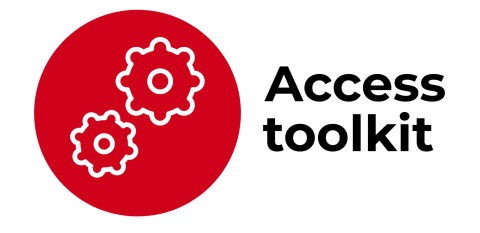Urban Community Resilience Toolkits
LAS TRADUCCIONES AL ESPAÑOL DE LOS JUEGOS DE HERRAMIENTAS ESTÁN AQUÍ
The urban community resilience toolbox includes three connected and complementary toolkits to help urban communities identify their resilience priorities and design sustainable and scalable solutions together with a diverse set of partners: City-wide Resilience Assessment, Building Coalitions for Urban Resilience, and Designing Solutions for Urban Community Resilience. These toolkits are developed and tested with the Red Cross National Societies of Indonesia, Vanuatu, and Myanmar with funding support from the USAID under the Coastal Cities Resilience program.
You can find case studies, videos, and other learning documents about the process of coalition-building for urban resilience here.
City-Wide Resilience Assessment
This toolkit connects and complements the two others that are developed for the same purpose: Buiding Coalitions for Resilience and Designing Solutions for Urban Community Resilience.
Examples from the field:
- Measuring disaster-resilient communities: A case study of coastal communities in Indonesia
- Lessons Learned in Semarang and Ternate cities in Indonesia in implementing the coastal cities resilience program.
- City Risk Assessment Report, Luganville, Vanuatu.
- City Risk Assessment Report, Semarang, Indonesia.
- City Risk Assessment Report, Ternate, Indonesia.
Building Coalitions for Resilience
Addressing the increasingly complex issues facing urban areas requires a city-wide civic process to build local coalitions to guide and foster work at the community level and tap the wide range of resources available in cities. This coalition-building process engages a wide set of interested stakeholders from local government, civil society organizations, the private sector, academia, and community volunteers to identify and pursue locally developed solutions for resilience and climate change adaptation. This is the main concept behind the One Billion Coalition for Resilience (1BC) of the IFRC.
This toolkit is a guide to building these coalitions. It is a companion to the City-wide Resilience Assessment Toolkit. Ideally, both toolkits would be used together, taking from each what is needed given local context and experience.
Designing Solutions for Urban Community Resilience
This toolkit offers a methodology to co-design viable, inclusive, and sustainable community resilience solutions, by applying creative solutions based on the people, their needs, desires, and limitations, on every step of the design process to address complex problems. There are three complementary parts of this toolkit that will guide facilitators on how to interact with participants through reflections, exercises, and other resources.




